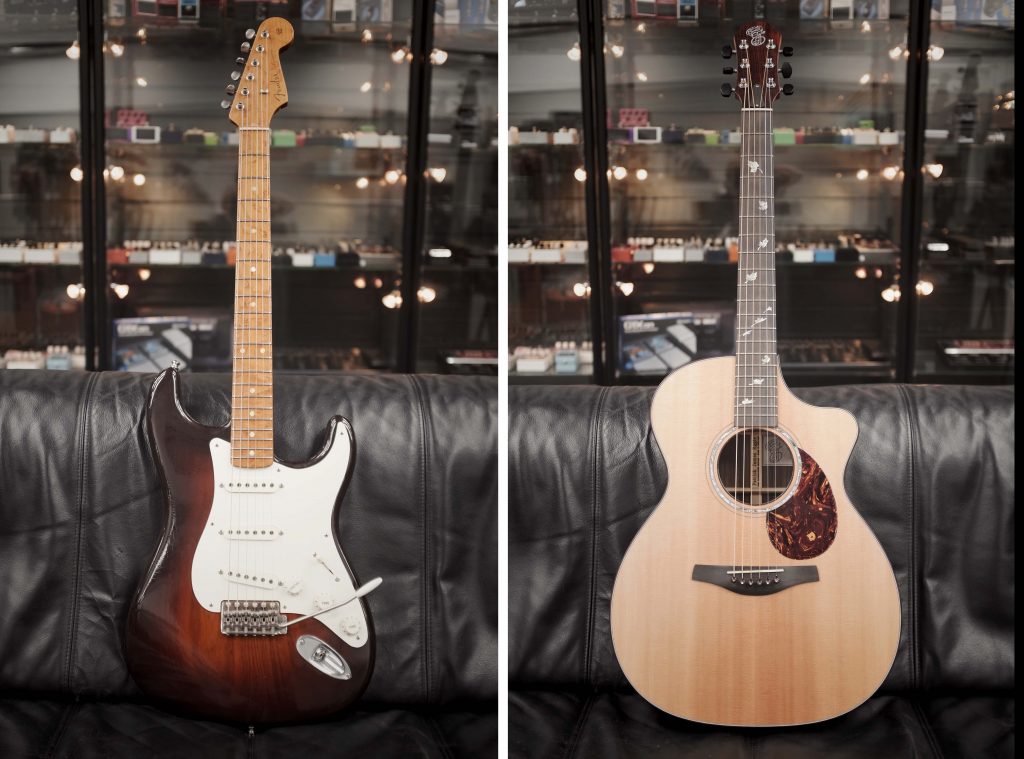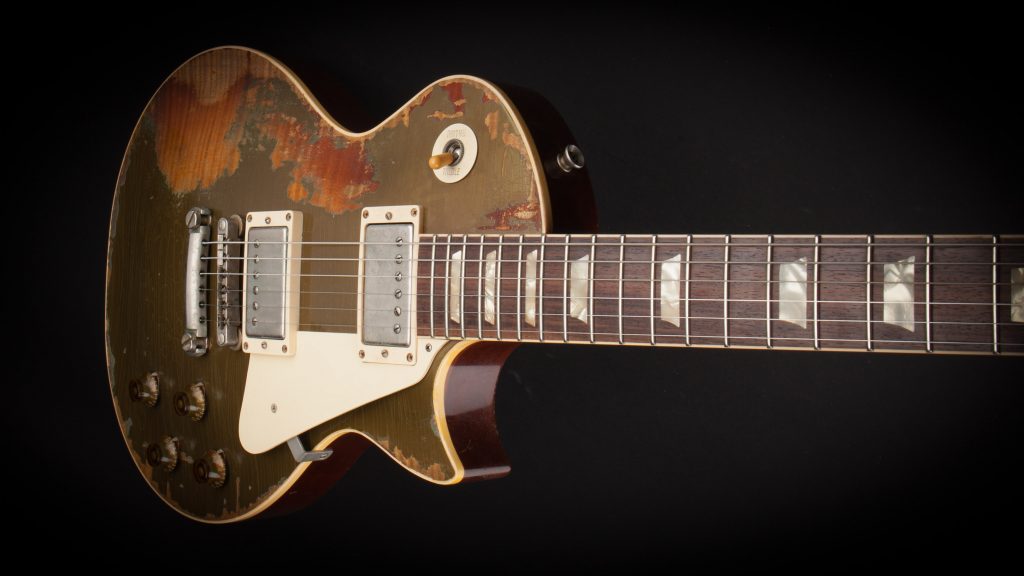Buying Preowned: Old Wood, Just as Good?
Posted on Mon 30 July 2018 in entries
The guitar industry is facing a little bit of a problem... I'm not talking Gibson failures or the fact there seems to be less and less guitar heroes making it to the big time like they did during the 50s/60s/70s etc. What I'm talking about wood, or lack of it.
[I'm gong to start this article by letting my inner eco-warrior have a moment of freedom with the keyboard… Cliches inbound:]
We need trees, trees are the lungs that help our planet breath. Deforestation on a massive scale is destroying entire eco systems, and making certain species extinct. We are the most intelligent but hopelessly stupid animals that have ever inhabited this planet.
The wood that is required by the instrument making industry only makes up a small percentage of total wood consumed worldwide but it's still demand drives supply, and supply means chopping down more trees. There are a lot of initiatives among builders to source responsibly harvested woods the world over. A lot of woods that have been used to make guitars for centuries have, in recent years gained endangered status and are being actively protected by CITES.
[Where does this leave the industry? Looking elsewhere for different tone woods and also different ways to process them is the current way guitar manufacturers are resolving this issue.]
[Planting new forests of fast growing woods like Taylor do in order to meet the demand they require. This is a great move but there are two issues that I feel need to be highlighted: only certain species can be forced grown at the rates they are required, and also I'm sure anyone that has played an instrument of a certain vintage will attest to, there is something about these old woods that just literally resonate and sound better. Why is this and how do we jump that hurdle?]
Wood ageing over time is an obvious factor as to why this may occur and we have come up with the torrified wood process. This involves heating the wood in a oxygen free environment to balmy temperatures to literally roast all the evil that lurks within the grain, thus providing an incredibly rich sounding and nice looking piece of wood to build an instrument with.
[There have been experimentation with different materials such as those used on the Jeff Tweedy's signature Martin. But as a whole we are traditional bunch and like good old fashion wooden instruments. ]
A lot of the big manufacturers and also smaller luthiers are sitting on some fantastic wood stock but these are finite and will need replacing at some point hence why they are looking into alternative idea in order to keep the industry ticking along.
But there is still something we cannot mimic no matter how hard we try, and that is that instruments from a certain era are from wood stock that was natural; by natural I mean slow growing in their natural habitat. Instruments made from this superior wood stock generally have far more desirable characteristics such as, resonance, lighter weight and higher figuring. A good comparison to make is to think of these new forests as the wood equivalent of battery farmed Hens. In the early days of electric guitar production this higher quality of the wood stocks were often taken for granted and painted over! Let's take a Gibson Les Paul Goldtop from the 50s; If you look at some well played models now you can see where the finish has worn thin there is an incredible flame hidden under that finish. Flame wasn't in vogue at the time but the woods were of such a high quality that these instruments gained legendary status).
[caption id="attachment_20471" align="aligncenter" width="525"] ]({static}/uploads/2018/07/Preowned-2.jpg) An example of the great preowned instruments we get in stock. Fender Roasted '56 Start left and PJE Acoustic right[/caption]
]({static}/uploads/2018/07/Preowned-2.jpg) An example of the great preowned instruments we get in stock. Fender Roasted '56 Start left and PJE Acoustic right[/caption]
[Why am I going on about all this? This isn't a Lush blog post after all! This is purely a way to set myself up to give anther solution: buy preowned.][
Obviously not all preowned instruments are vintage beauties, and let's face it, the sums of money that trades hands in that market can make your eyes water somewhat! But giving a guitar a second chance is a great way to get an exceptional instrument, for less, while simultaneously not feeding the deforestation machine. ]
Here at Absolute Music we really feel that we give our second hand guitars the best possible start to their second life as every one we buy in, or part exchange goes through the hands of our two workshop gurus, Robin and Joe. They inspect each instrument prior to putting them through a set up which is tailored to each guitar that comes in. Sometimes it is only a truss rod adjustment, fret polish and some new string whereas others can be in dire need of more serious work. We have re-fretted pre owned instruments to be sure they are the absolute best they can be before they reach their new owners.
We welcome part exchange against most of our guitars here but so please feel free to give us a call and speak to us.
I will balance this post with a 'why buy new' post that won't be so green peace.
